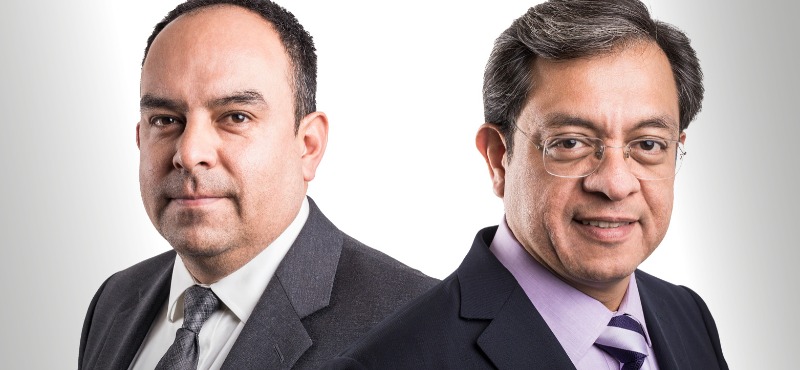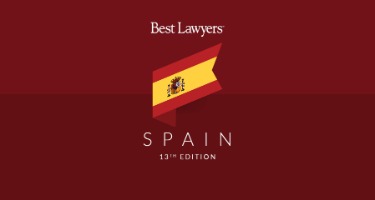Can you tell me about some trends you have witnessed within labor and employment law in Mexico this past year?
JC: We have a number of things occurring at this point. On one side, we are seeing the union aspect. For example, we are seeing that conflicts, in general in the country, are racing up, so we are seeing more movement from employees around the country in different cities, and that creates problems. It affects businesses, and that’s when we are hired to fight back against unions or to cooperate with unions. But as a trend, something we are seeing are the union conflicts rising. It’s hard to say why, but probably one of the reasons is because right now we have a big debate in Congress on changes in labor legislation, and one of the topics that is up for discussion is the union’s democracy, the right of employees to decide who they want to be represented by, and that probably has affected the status quo.
AR: I would say also, talking about the individual conflicts or litigation. At least, what we have seen this year is that there’s an increase of conflicts on that side. For example, it has become even more common that top executives decide to fight a lawsuit toward trial rather than trying to settle, so that’s another thing we have seen.
JC: It used to be that top executives would not commonly file complaints in the past, and now this is becoming quite open. Now whenever there is a conflict with a top executive, there is a claim.
How would you say your firm has dealt with these trends?
JC: We have been fortunate enough because we have been representing a number of clients that have participated in huge union conflicts in the last couple of months, and so that’s the way we’re fully participating in many big union controversies. It’s exactly the same as representing employers litigating cases against top executives. I would say that the trouble with these two aspects is an important piece of our practice, and so we are becoming very specialized in top executive claims and also in union matters.
How do you predict the practice might continue to change in the coming years?
JC: There will be important changes. We are seeing the discussion in Congress, as we just mentioned, regarding important changes in the legislation, and one of the huge changes is the way employment-related disputes will be resolved. Right now, our existing conciliation and arbitration boards, which are similar to a court, will no longer exist, and they were depending upon the executive power, and now there will be labor tribunals. Part of the judicial power and the rules for the procedures will be totally different. So we as lawyers see that we need to go back to school, to review the new legislation and analyze it carefully. After that, it’s hard to predict the impact to our practice. But I am certain that it will be totally different from what we know now.
AR: It seems that there is an intention from the federal and local governments to motivate and encourage the parties to settle and follow a conciliation process with the real intention to find an out of court settlement. On the other hand, it seems they are going to try to expedite the legal process regarding conflicts, because right now it could take several years, in order to have a final and binding resolution in labor matters, so as Juan Carlos mentioned, there will be a huge change—probably a cultural change, so to speak.
What attributes do you think your firm has that contributed to its recognition as a “Law Firm of the Year”?
JC: It’s very hard to talk about ourselves, especially if you try to talk about good things. It should be talked about by others. But if we were to say something: we believe that our labor and employment practice has gotten to this point because we have been lucky and clever enough to participate in the some of most important cases in the country, and we have had the ability, along with our clients’ efforts—because it’s not only our effort—to get these problems and inconveniences solved for our clients. Definitely being in the right spot at the right time is something that has helped us. We do continue to educate our team everyday with every new situation that comes up so that we are ready to respond to our clients’ needs in a way that allows us to follow the excellence of service we try to provide. That is probably one of the reasons.
AR: Another aspect is that we are always trying to create a culture among ourselves, among our lawyers, in order to be very savvy regarding technicalities on the legal side, but also to try to think as entrepreneurs or business lawyers so to speak. So we always try to give legal advice of course, but also a practical approach. What I have seen is that our clients appreciate that very much.
Can you tell me about some of those big name cases you worked on and if they had any impact on Mexican policy or law?
JC: Probably the biggest one we handled this year is with an airline. It is open, so I can speak openly about it. It’s Aeromar.
In the beginning of last year, Aeromar was a broke company, and there was an investor by the name of Avianca, the large South American airline, who wanted to invest in the company. But among the precedent conditions, they said, “I want you to eliminate all the limitations for the operations of the airplanes that are stipulated in the collective bargaining agreement.”
Here there were basically two collective bargaining agreements: one with the pilots unions and the other one with the national flight attendant union. This case was very tough because these two unions have been traditionally radical. We were close to getting three strikes in three months, but finally we were able to convince the union’s leadership to accept our position, because it was the only way we could guarantee the survival of the business. If the company entered into strike, the company would have closed in six days, so there were a thousand people living out from the business.
But perhaps one of the real contributions to the country was that this negotiation set a unique precedent in the Mexican airline industry, and second, it’s the only competitor on this level, which is AeroMexico. AeroMexico is called a “full-service airline” in the industry. And there are no other full-service airlines in the country. Now with Aeromar being invested by Avianca—Avianca wants to build another full-service airline in the country—so now as the business grows, the intention is that the consumers—you and I—would be able to buy tickets from other options. Before that we didn’t have them, so I guess that’s the huge contribution in this particular case.
Is there any other case(s) you would like to talk about, or anything else you’d like to add?
JC: We could probably just add that one of the strengths of our practice is that we represent companies when there is a quarrel between labor organizations, when there is a fight as to who employees want to be represented by. We participate on behalf of the company to oversee the company’s interests. We have seen a number of those high-level cases. We just recently ended a case in a Baja California Sur hotel with nearly 600 employees in the Esperanza Resorts. And we are currently fighting several claims in which the national mining union is suing our clients and the unions that exist currently for our clients, and we are defending those cases, too. We have names like Teksid, which is a part of the FIAT Group. Also, Grupo México, which is one of the largest mining conglomerates in Mexico, among other cases. Some of those are ongoing and we cannot give further details—and those kinds of cases take several years to get solved.

































